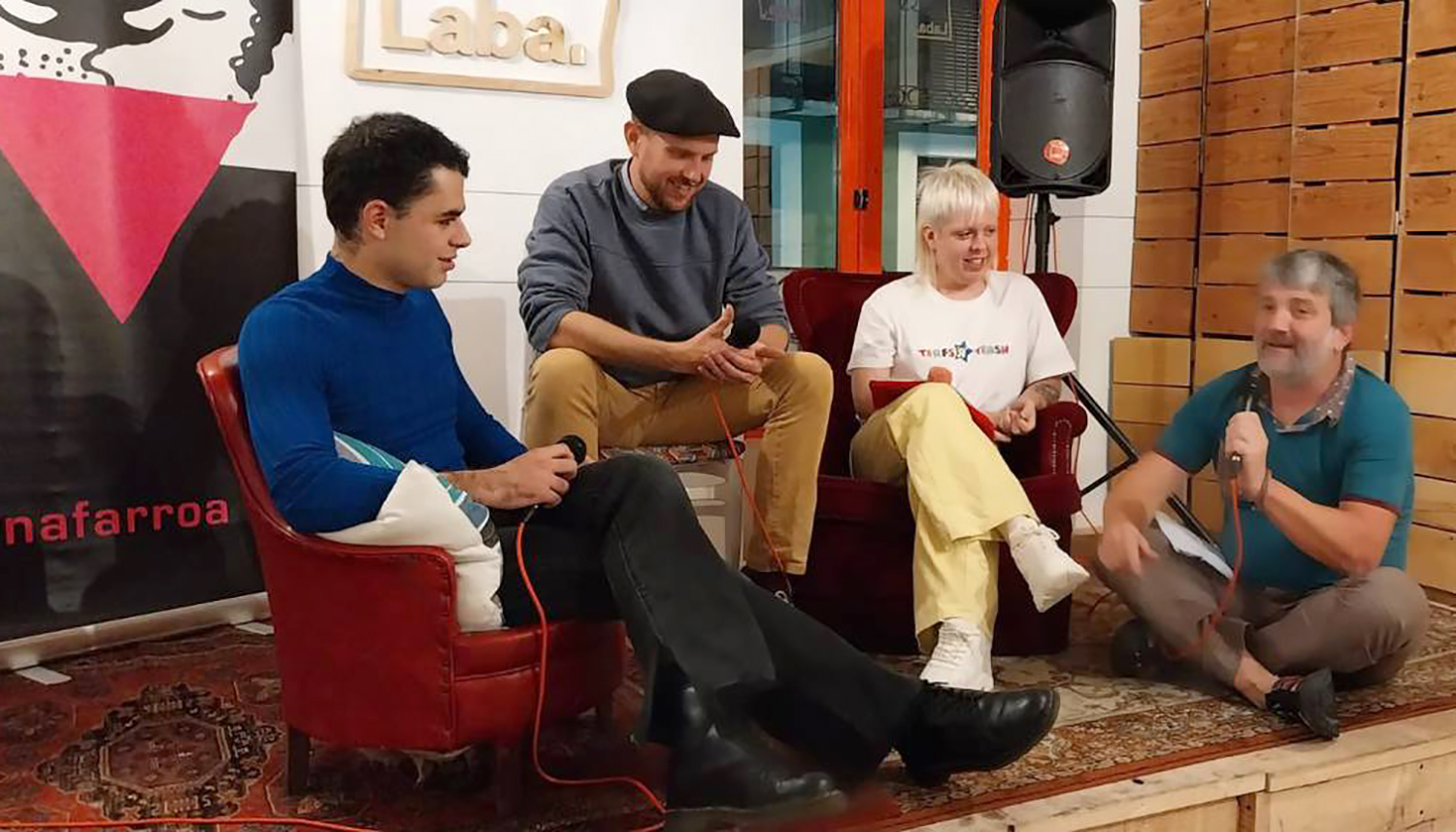
- ‘Xoka. Ehgam Navarra organised the ‘Jites dissidents’ conference. Three sessions will be held in Laba de Pamplona: 5, 13 and 19 November.

The day Xoka Jite dissidenteak, organized by Ehgam Navarra, aims to bring dissent to language in sexual diversity. “For this we use the word we invented. Beyond the toka and the corner, it's also a rope. That is, a non-binary gender system,” explains Kepa Yecora, a member of Ehgam Navarra. She stresses that this is a collaboration with Laba and Bilgune Feminist: “It’s very important with whom and with what goals we make alliances.” On 5, 13 and 19 November, at 19:00, they will be active in Laban (Pamplona).
Last year they also addressed the issue, as they saw that there was much to reflect on this issue. Ana Jaka participated as rapporteur before Ehgam became part of Navarra. Along with Gatx Eizagirre, a non-binary transfeminist steak, they talked about Basque music. That is, through the Basque Country, sexually dissident people call themselves and the practices and resources that can be created. “It has been a process of empowerment. I didn't see myself using language as a tool for fighting. After that, I’ve seen that it’s very nice to turn the language around,” Jaka said.
November 5, Decolonization of Ekhi Petriati and Amaia Zufiak by Bilgune Feminist. We will talk about our corners. They wanted it to be the first of the days of last year, but because of the feminist strike, they couldn't do it. “We think it is very important to analyze where and how we make the speeches. The discourse has two aspects; on the one hand, hegemonic: we are Spanish, French, European and white. On the other hand, we are Basques, in Navarra. We want to analyze how to make these speeches in a minority language and in a people that wants self-determination,” Yecora explained.
It is an attempt to look inside and outside and to create discourses that take into account diverse experiences: “To the extent that we are colonized, we must analyze whether the speeches we generate are the ones we have made or the ones we have imposed.” He adds that it is clear that discourses cannot be built only with the experiences and expectations of middle-class people: “We have to bring other experiences to the center, but in Basque.”
Reflecting from culture
The second programme, on November 13, will be presented by Itxaro Borda and Juanjo Olasgrip. Literary Cuir will offer a talk. It is a question of analyzing the characteristics of the Kuir literature, how speakers look and what their references are.
The cycle will end on 19 November with the performance of Bollobertsoak. In addition to the bertsolaris Amaia Agirre, Miren Artetxe and Maider Arrangi. “In the theater it is more common to talk to the actors after the shows. In that we have inspired ourselves,” said Jaka. He has a “great” interest in the subject, since until he knew the actions of a bun he did not have much interest in bertsolarism: “Up until now, the shapes became very strange to me. The Bertsolaris Bollo have given us a nice gift to all of us who were far from Bertsolaris."
In addition, he added that in the imaginary of Bertsolarism “there are white Gipuzkoan men who are in the Basque Country”. For this reason, he has thanked the work done by the bertsolaris de bollo to bring dissent to the plaza: “I think it is important to see that it is not something done by an individual, but that they are organized and are a collective.”